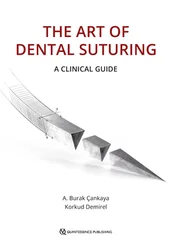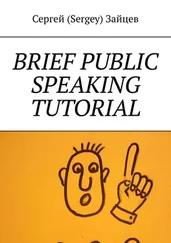duty, the cause of constitutional freedom is safe. If we
fail--if we fail--not only do we defraud our children of the
inheritance which we received from our fathers, but we blast the
hopes of the friends of liberty throughout our continent,
throughout Europe, throughout the world, to the end of time.
History is not without her examples of hard-fought fields, where
the banner of liberty has floated triumphantly on the wildest
storm of battle. She is without her examples of a people by whom
the dear-bought treasure has been wisely employed and safely
handed down. The eyes of the world are turned for that example
to us....
Let us, then, as we assemble on the birthday of the nation, as
we gather upon the green turf, once wet with precious blood--let
us devote ourselves to the sacred cause of constitutional
liberty! Let us abjure the interests and passions which divide
the great family of American freemen! Let the rage of party
spirit sleep to-day! Let us resolve that our children shall have
cause to bless the memory of their fathers, as we have cause to
bless the memory of ours!
--EDWARD EVERETT.
CONCENTRATION IN DELIVERY
Attention is the microscope of the mental eye. Its power may be
high or low; its field of view narrow or broad. When high power
is used attention is confined within very circumscribed limits,
but its action is exceedingly intense and absorbing. It sees but
few things, but these few are observed "through and through" ...
Mental energy and activity, whether of perception or of thought,
thus concentrated, act like the sun's rays concentrated by the
burning glass. The object is illumined, heated, set on fire.
Impressions are so deep that they can never be effaced.
Attention of this sort is the prime condition of the most
productive mental labor.
--DANIEL PUTNAM, _Psychology_.
Try to rub the top of your head forward and backward at the same time
that you are patting your chest. Unless your powers of coördination are
well developed you will find it confusing, if not impossible. The brain
needs special training before it can do two or more things efficiently
at the same instant. It may seem like splitting a hair between its north
and northwest corner, but some psychologists argue that _no_ brain can
think two distinct thoughts, absolutely simultaneously--that what seems
to be simultaneous is really very rapid rotation from the first thought
to the second and back again, just as in the above-cited experiment the
attention must shift from one hand to the other until one or the other
movement becomes partly or wholly automatic.
Whatever is the psychological truth of this contention it is undeniable
that the mind measurably loses grip on one idea the moment the attention
is projected decidedly ahead to a second or a third idea.
A fault in public speakers that is as pernicious as it is common is that
they try to think of the succeeding sentence while still uttering the
former, and in this way their concentration trails off; in consequence,
they start their sentences strongly and end them weakly. In a
well-prepared written speech the emphatic word usually comes at one end
of the sentence. But an emphatic word needs emphatic expression, and
this is precisely what it does not get when concentration flags by
leaping too soon to that which is next to be uttered. Concentrate all
your mental energies on the present sentence. Remember that the mind of
your audience follows yours very closely, and if you withdraw your
attention from what you are saying to what you are going to say, your
audience will also withdraw theirs. They may not do so consciously and
deliberately, but they will surely cease to give importance to the
things that you yourself slight. It is fatal to either the actor or the
speaker to cross his bridges too soon.
Of course, all this is not to say that in the natural pauses of your
speech you are not to take swift forward surveys--they are as important
as the forward look in driving a motor car; the caution is of quite
another sort: _while speaking one sentence do not think of the sentence
to follow_. Let it come from its proper source--within yourself. You
cannot deliver a broadside without concentrated force--that is what
produces the explosion. In preparation you store and concentrate thought
and feeling; in the pauses during delivery you swiftly look ahead and
gather yourself for effective attack; during the moments of actual
speech, _SPEAK--DON'T ANTICIPATE_. Divide your attention and you divide
your power.
This matter of the effect of the inner man upon the outer needs a
further word here, particularly as touching concentration.
"What do you read, my lord?" Hamlet replied, "Words. Words. Words." That
is a world-old trouble. The mechanical calling of words is not
expression, by a long stretch. Did you ever notice how hollow a
memorized speech usually sounds? You have listened to the ranting,
mechanical cadence of inefficient actors, lawyers and preachers. Their
trouble is a mental one--they are not concentratedly thinking thoughts
that cause words to issue with sincerity and conviction, but are merely
enunciating word-sounds mechanically. Painful experience alike to
audience and to speaker! A parrot is equally eloquent. Again let
Shakespeare instruct us, this tune in the insincere prayer of the King,
Hamlet's uncle. He laments thus pointedly:
My words fly up, my thoughts remain below:
Words without thoughts never to heaven go.
The truth is, that as a speaker your words must be born again every time
they are spoken, then they will not suffer in their utterance, even
though perforce committed to memory and repeated, like Dr. Russell
Conwell's lecture, "Acres of Diamonds," five thousand times. Such
speeches lose nothing by repetition for the perfectly patent reason
that they arise from concentrated thought and feeling and not a mere
necessity for saying something--which usually means anything, and that,
in turn, is tantamount to nothing. If the thought beneath your words is
warm, fresh, spontaneous, a part of your _self_, your utterance will
have breath and life. Words are only a result. Do not try to get the
result without stimulating the cause.
Do you ask _how_ to concentrate? Think of the word itself, and of its
philological brother, _concentric_. Think of how a lens gathers and
concenters the rays of light within a given circle. It centers them by a
process of withdrawal. It may seem like a harsh saying, but the man who
cannot concentrate is either weak of will, a nervous wreck, or has never
learned what will-power is good for.
You must concentrate by resolutely withdrawing your attention from
everything else. If you concentrate your thought on a pain which may be
afflicting you, that pain will grow more intense. "Count your blessings"
and they will multiply. Center your thought on your strokes and your
tennis play will gradually improve. To concentrate is simply to attend
to one thing, and attend to nothing else. If you find that you cannot do
that, there is something wrong--attend to that first. Remove the cause
and the symptom will disappear. Read the chapter on "Will Power."
Cultivate your will by willing and then doing, at all costs.
Concentrate--and you will win.
1. Select from any source several sentences suitable for speaking aloud;
Читать дальше












